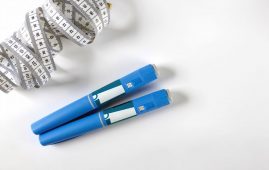

A topical lotion to prevent and treat skin cancer in organ transplant recipients is one step closer to being developed.
The National Foundation for Medical Research and Innovation has awarded $344,000 to the University of Queensland researchers developing the world’s first treatment to help move the cream through pre-clinical development.
Associate Professor James Wells of UQ’s Frazer Institute stated that the cream featured a novel chemical that inhibited the formation of skin cancer, which was discovered and developed in collaboration with UniQuest’s small molecule drug discovery effort, QEDDI.
This project funding is essential to progress the cream through pre-clincial development and allow us to create a formula suitable for application on human skin.
It’s a major step forward that we hope will allow us to take this promising molecule to clinical trials down the track.”
Dr. James Wells, Associate Professor from UQ’s Frazer Institute
The medicine is unique in that it has the ability to both prevent and treat early stages of skin cancer in organ transplant patients.
“After receiving an organ transplant, patients have to take immunosuppressive drugs to help ensure their bodies do not reject the new organs,” Dr Wells said.
“However, this drug can increase a patient’s risk of skin cancer, in particular squamous cell carcinomas (SCC) and Kaposi’s Sarcoma.
“Currently there are no FDA-approved drugs to treat SCCs in these patients, so skin cancers must be managed with regular medical checks and removals over a person’s lifetime until one becomes too advanced and metastasises.
“Patients are left with few options without risking transplant rejection, and that’s why this new treatment would be life-changing for them.”
Dr Wells said QEDDI’s pre-clinical development work would allow the research team to investigate depth of application to the skin and also enable larger scale manufacturing down the track.
UniQuest CEO Dr. Dean Moss said a first-of-a-kind treatment for transplant recipients would make an incredible difference to the lives of patients.
“It is exciting to see its journey to the clinic continue,” he said.
UniQuest has filed a patent on the molecule.
For more information: The University of Queensland
more recommended stories
 Parkinson’s Disease Care Advances with Weekly Injectable
Parkinson’s Disease Care Advances with Weekly InjectableA new weekly injectable formulation of.
 New Blood Cancer Model Unveils Drug Resistance
New Blood Cancer Model Unveils Drug ResistanceNew Lab Model Reveals Gene Mutation.
 Osteoarthritis Genetics Study Uncovers New Treatment Hope
Osteoarthritis Genetics Study Uncovers New Treatment HopeOsteoarthritis- the world’s leading cause of.
 Antibody Breakthrough in Whooping Cough Vaccine
Antibody Breakthrough in Whooping Cough VaccineWhooping cough vaccine development is entering.
 Scientists Unveil Next-Gen Eye-Tracking with Unmatched Precision
Scientists Unveil Next-Gen Eye-Tracking with Unmatched PrecisionEye-tracking technology has long been a.
 Machine Learning Predicts Early Mortality in IBD Patients
Machine Learning Predicts Early Mortality in IBD PatientsA groundbreaking study published in the.
 BRP Peptide for Weight Loss: A Natural Alternative to Ozempic?
BRP Peptide for Weight Loss: A Natural Alternative to Ozempic?The rising obesity epidemic has fueled.
 Men5CV: Hope for Ending Africa’s Meningitis Epidemics
Men5CV: Hope for Ending Africa’s Meningitis EpidemicsA landmark global health study led.
 Father’s Diet & BMI Don’t Affect Newborn’s Birth Weight
Father’s Diet & BMI Don’t Affect Newborn’s Birth WeightA recent study published in Nutrients.
 Stem Cell Therapy Shows 92% Success in Corneal Repair
Stem Cell Therapy Shows 92% Success in Corneal RepairA groundbreaking stem cell therapy known.

Leave a Comment